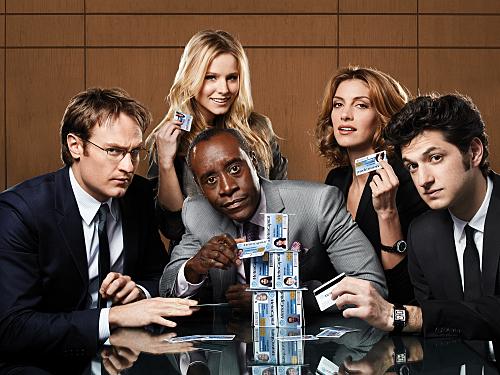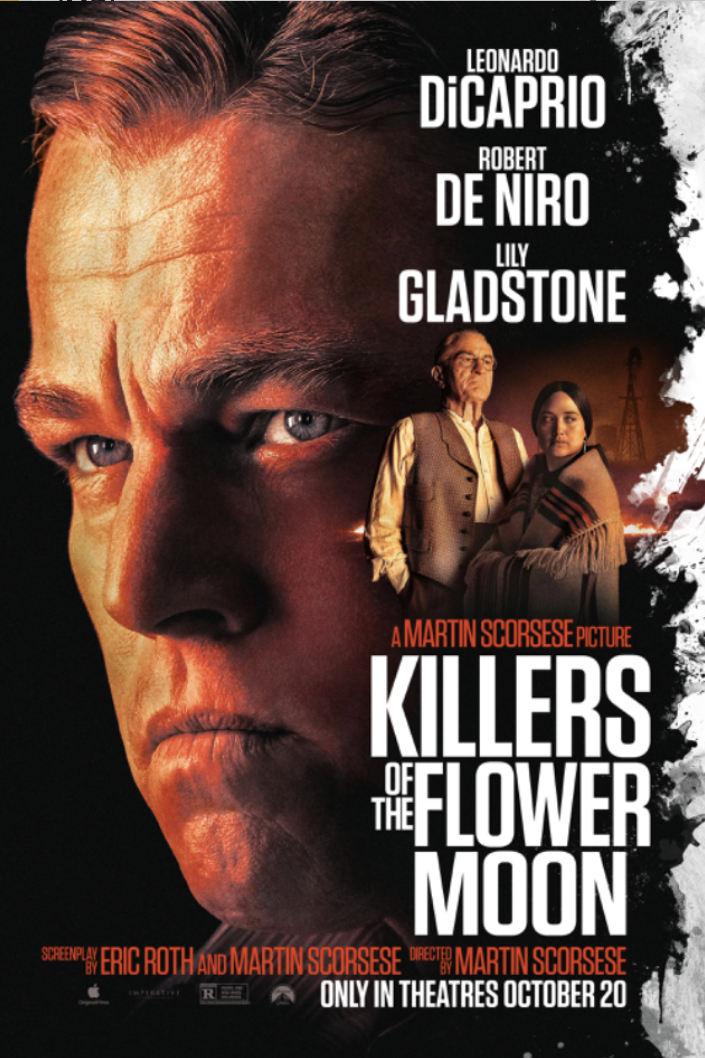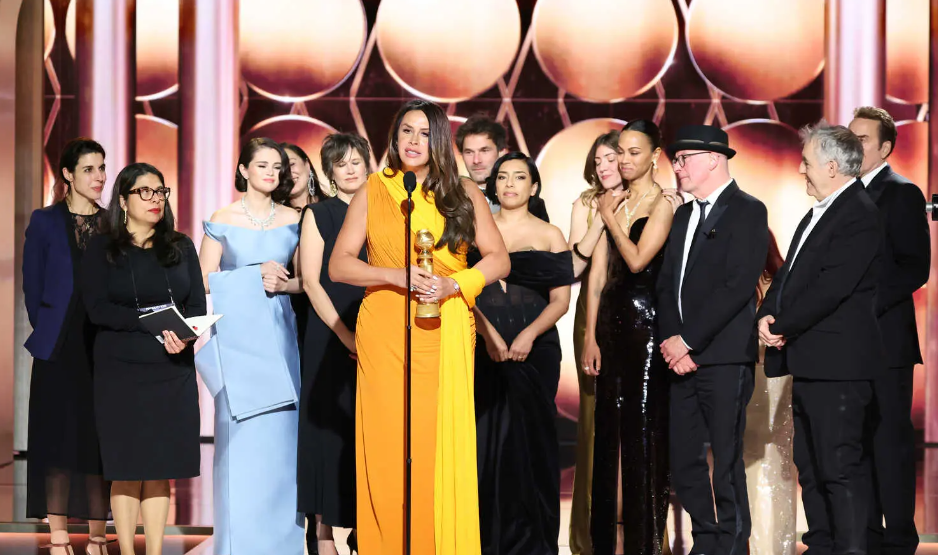During a time in which the most hated American citizens are undeservedly affluent businessmen, Showtime’s newest series, “House of Lies”, with a charismatic cast and finance driven plot line, would appear to be a perfect storm of epic television proportions. Led by Don Cheadle, a bona fide star in the acting industry, “House of Lies” centers around the cut throat world of management consultants, who seem to do everything in their power to take advantage of the avarice nature of America’s corporate big shots. However, despite of its obvious birth right advantages, Showtime’s glance at the world of American big business fails to reach its staggering potential.
Cheadle plays the role of Marty Kaan, the most effective management consultant at the second most powerful firm in the nation. Here is the kicker, the top consultant at the number one firm happens to be Marty’s ex-wife, Monica Talbot, played by Dawn Olivieri (“Heroes”). Despite this element’s intention to thicken the show’s plot line outside of the boardroom, the writers fail to effectively utilize this relationship in Kaan’s character development; so far, the only out-of-work interaction between Monica and Marty has been the occasional romantic rendezvous which all end in similar fashion, each character echoing the mutual loathing they feel toward one another. In accordance with the premium channel blueprint for hit television shows, Kristen Bell (Forgetting Sarah Marshall) provides the show’s sex appeal as the leading woman on Kaan’s team, Jeannie Van Der Hooven. The lone female on Marty’s team, Jeannie’s ferocity matches that of her boss, and appears to be a possible love interest for Kaan down the road. Another highlight of Showtime’s newest series is the on-screen chemistry between Ben Schwartz and Josh Lawson, who round out Kaan’s crew as the smooth talking Clyde Oberholt and the ever-clumsy Doug Guggenhiem. This seemingly perfectly casted ensemble has lived up to the hype. However, the show’s weak plot does not allow for the characters to fully develop, prohibiting viewers from growing close with its characters.
“House of Lies”, with its big-name cast and prime exposure on one of America’s most relied upon sources for hit television, has all the ingredients of a ground breaking, decade defining program. Unfortunately for Showtime, the writers of “House of Lies” not only fall short of being ground breaking, but also fail to achieve even the slightest bit of originality. Sure, “House of Lies” is like nothing else on the air, but Kaan’s still-framed soliloquies, intended to be a unique blend of charm, power, and wit, sound more like paraphrased quotations from 1992’s “Glengarry Glen Ross” and 1987’s “Wall Street”. This illustrates the fact that despite of its unheard of premise, “House of Lies” is actually nothing viewers haven’t seen before.
Marty’s aforementioned still-framed soliloquies, utilized heavily to help explain the ins-and-outs of the management consultant world, may in fact be the show’s most irritating element. Intended by the writers to be a lovable character, Kaan’s conceited and condescending attitude toward viewers makes Cheadle’s role far from likable.
Furthermore, the weekly conflict of “House of Lies” fails to garner any reaction from viewers because frankly, most do not care whether Marty’s team of pretentious Ivy-Leaguers wins or loses. And no, this is not because the average viewer does not possess the necessary intelligence to understand the show’s plot, but rather because its writers fail to create any bond between their characters and viewers; the fact that this can’t be accomplished, despite the use of soliloquies, speaks volumes about the incompetency of this program’s writers compared to those of other Showtime series. Perhaps these writers should have devoted more time to developing an addictive plot then trying to figure out when to include their next graphic sex scene; viewers cannot help but feel as though the writers of “House of Lies” are just chronically trying to remind those at home that this a Showtime series, rather than one of network cable.
Advertised as an ode to “taking down the man”, “House of Lies”, with its anti-climactic plot and pompous nature, instead leads viewers to extend their hatred of wealthy businessmen to management consultants like Kaan–because at the end of the day, what is Kaan besides just another wealthy businessman? In fact, every episode of “House of Lies” appears to be an ode to itself, making viewers dispute who is more excruciatingly smug–Kaan or the show’s creators?








